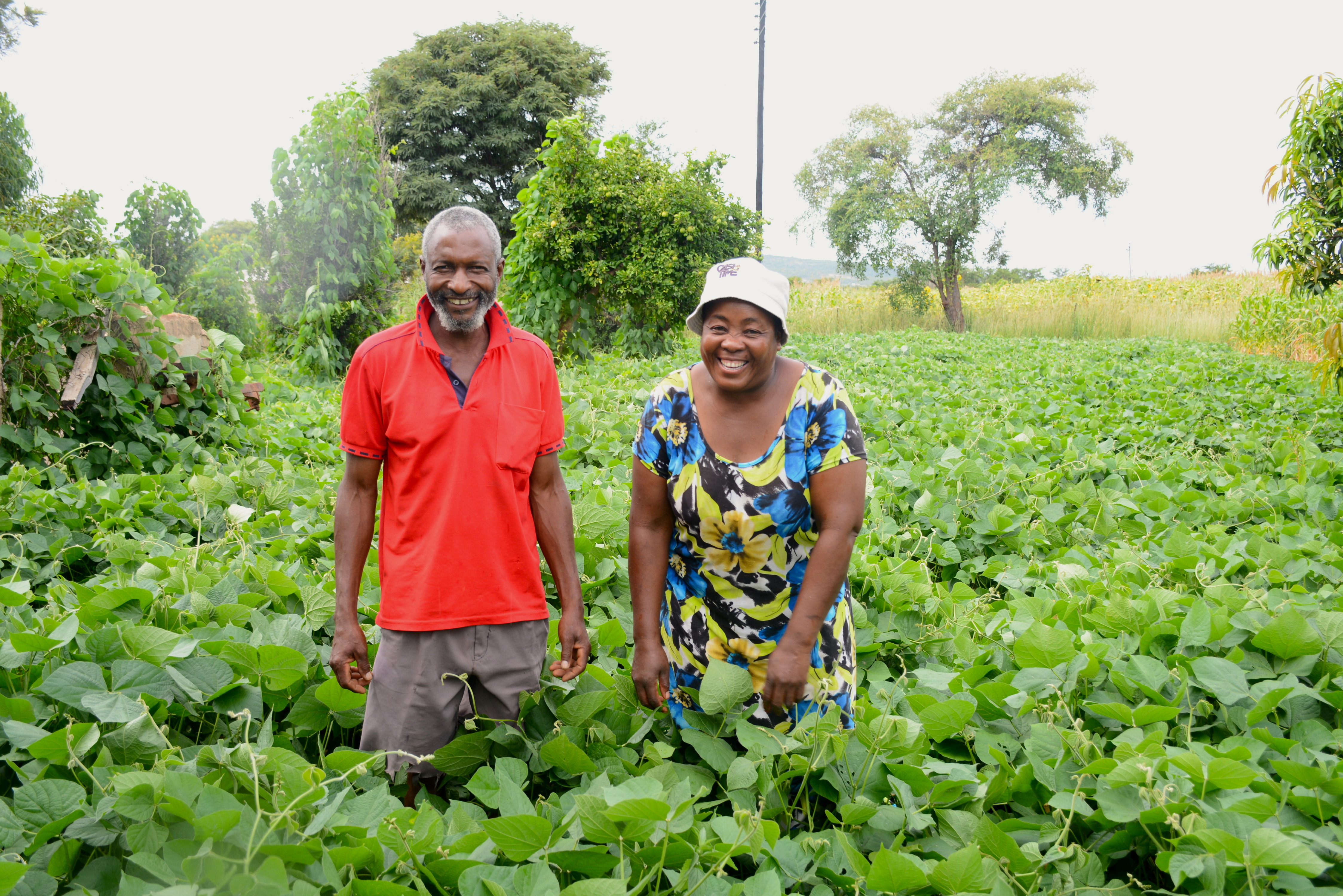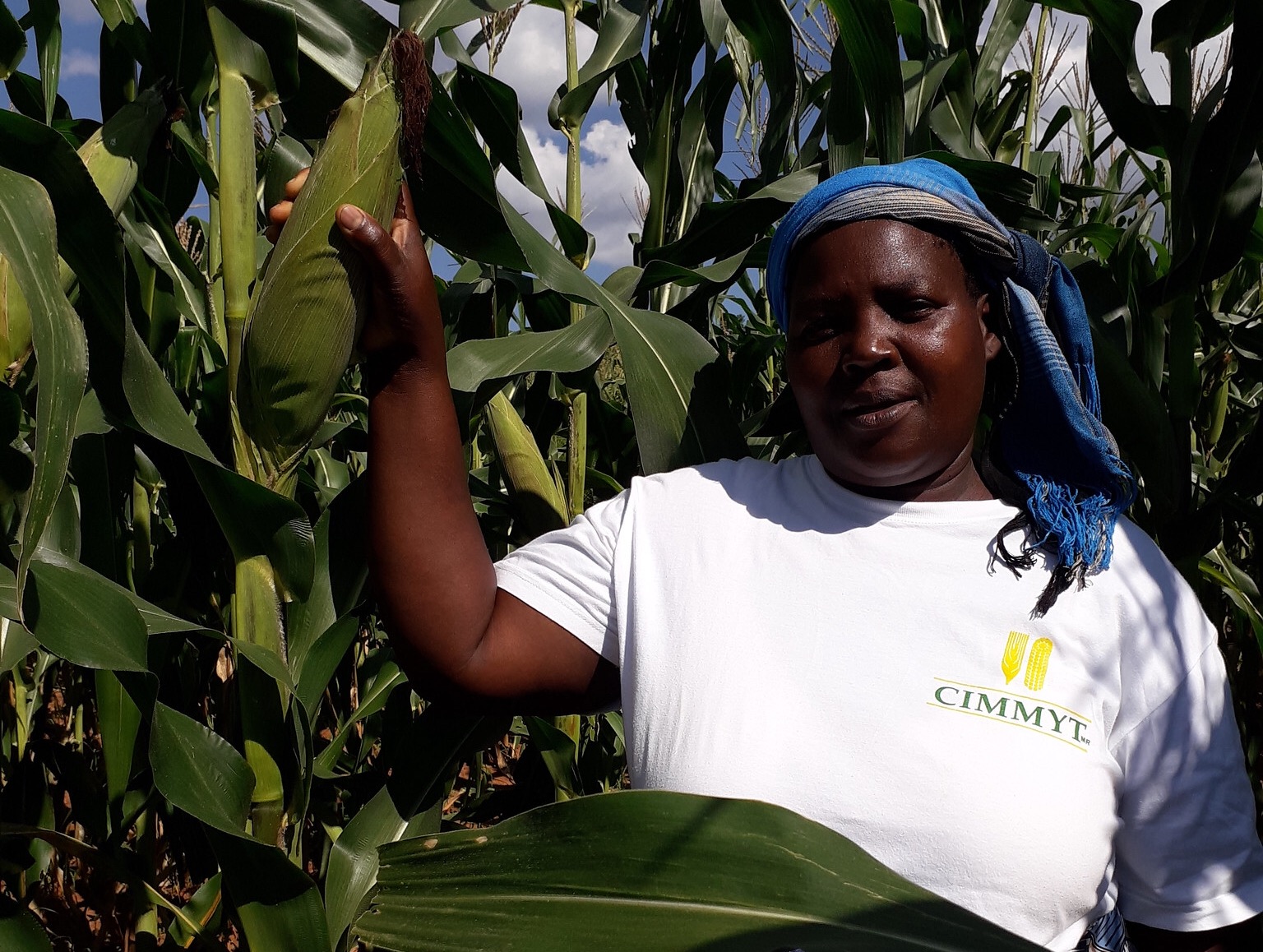How do you create the largest market for stress-tolerant seed away from a major business center and attract over 1000 smallholder farmers in two days? Organize a seed fair to strengthen knowledge and information sharing.
The availability, access and use of climate-resilient seed by smallholder farmers in Zimbabwe is often hampered by transport costs, the distance between farming areas and viable seed markets, lack of public transport to business centers, and the inflated prices of seed and inputs by local agro-dealers. As a result, resource-poor farmers who cannot afford to purchase inputs resort to exchanging local seed retained or recycled from informal markets. This has devastating effects on farmers’ productivity, food and nutrition security.
Under the Zambuko/R4 Rural Resilience Initiative, the International Maize and Wheat Improvement Center (CIMMYT) is promoting climate-smart technologies and appropriate seed varieties alongside conservation agriculture (CA) systems in Masvingo district, Zimbabwe. Since 2018, mother and baby trials have successfully yielded results for smallholders in Ward 17 and additional mother trials have been introduced in Ward 13.
To overcome the challenges of seed access, CIMMYT partnered with eight seed companies — including Agriseeds, Mukushi and SeedCo — to host two seed fairs in October, targeting farmers in Wards 13 and 17. The intervention sought to address seed insecurity while reducing the knowledge gap on available stress-tolerant seed varieties by smallholder farmers.
Groundwork preparations led by the Department of Agriculture and Extension Services (AGRITEX) mobilized farmers from the host wards as well as farmers from neighboring wards 15, 19 and 25. In light of the ongoing COVID-19 pandemic, regulations relating to social distancing, the use of masks and sanitization were adhered to throughout the events.
Climate-smart seed choices
A key message delivered to the more than 1000 farmers who attended the seed fairs was the importance of their preference when selecting the right seed for their field. “Farmers must be critical when selecting seed and ensure that their preferred seed will perform well under the prevailing climatic conditions to give a good harvest,” said CIMMYT seed systems specialist Peter Setimela.
Seed company representatives were offered a platform to market their varieties and explain the benefits of each product on the market while leaving it to the farmers to decide on the most suitable variety for their own needs. “Farmers came early for the seed fairs and showed interest in our products,” said Norman Chihumo, a regional agronomist at Syngenta Distributors. “We recorded fairly good sales of seed and chemicals through cash purchases and vouchers.”
Later in the day, farmers toured the seed company stands to see the diverse maize varieties and small grains on offer — including millet and sorghum, cowpeas and groundnuts — and heard testimonials from participants in the mother and baby trials. “Listening to a success story from a farmer I know gives me the confidence to follow suit and buy seed that works in this harsh climate of ours,” said Joice Magadza, a farmer from Ward 17.
Local farmer Happison Chitono agreed. “I never used to grow cowpeas on my plot,” he explained, “but after learning about the ability it has to fix nitrogen into my soil and possibility of rotating the legume with maize, I am now gladly adding it to my seed input package.”
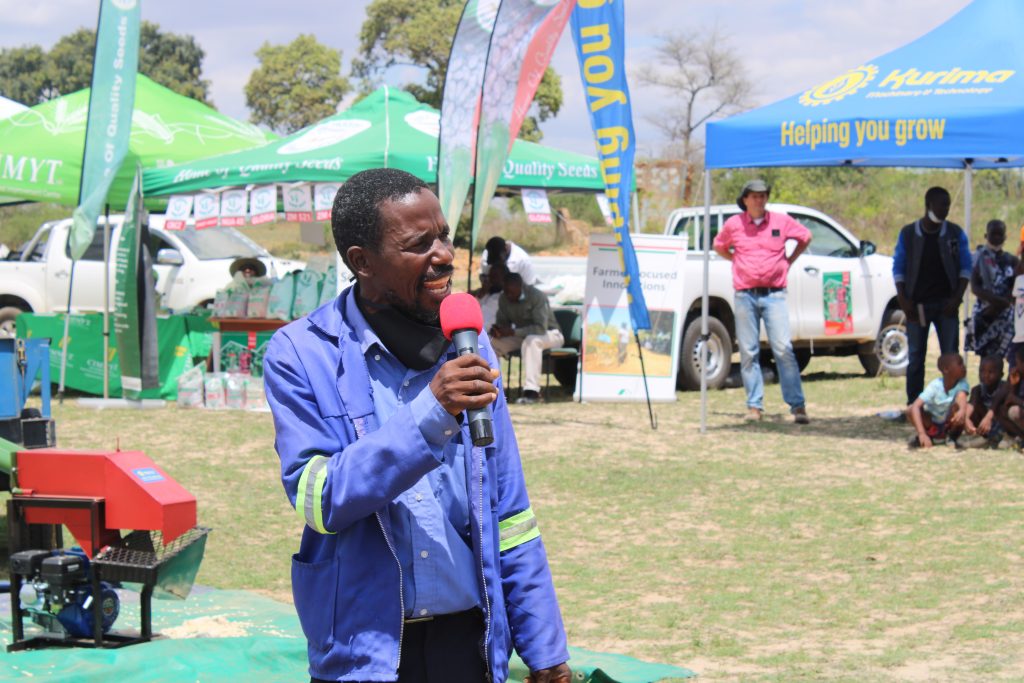
A seed fair is also a knowledge market
A key highlight of the seed fair was the learning platform promoting CIMMYT’s ongoing activities under the Zambuko/R4 Rural Resilience Initiative. Here, cropping systems agronomist Christian Thierfelder shared the objectives of this initiative with participating farmers.
“We know how good this seed is, but we also have to grow it in a sustainable way, so we make best use of the limited rainfall we receive in this area while we improve our soils,” he explained to farmers. “Cropping systems such as conservation agriculture combine no-tillage, mulching and crop rotation in a climate-smart agriculture way which enables farmers to harvest enough, even under heat and drought stress.”
Thierfelder also demonstrated the use of farm equipment promoted by CIMMYT in collaboration with Kurima Machinery, explaining how these can help reduce drudgery and save time on planting, transport and shelling.
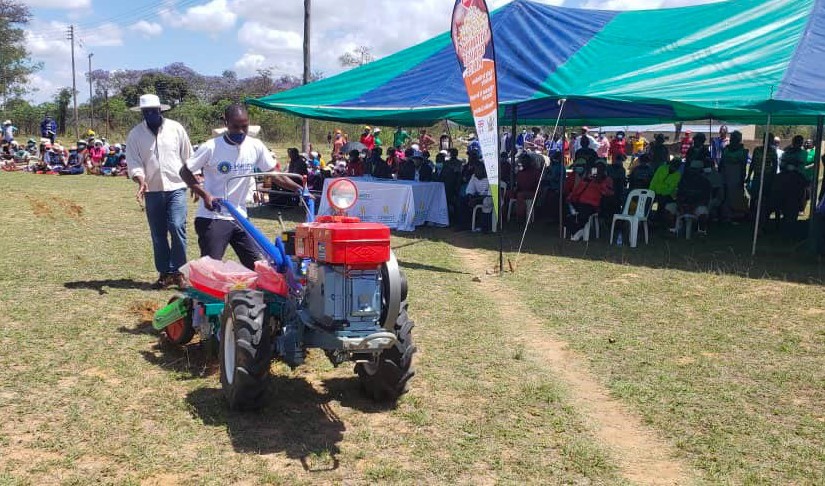
Vouchers for transparent seed access
The seed fairs culminated in the distribution of seed and input vouchers. One hundred farmers were selected through a transparent raffle and redeemed their vouchers at their preferred seed company stands. They then also had the option to purchase additional seed, fertilizer and chemicals using their own cash.
Particularly high sales were recorded for Provitamin A orange maize, which sold out on both seed fair days. Stress-tolerant varieties such as ZM 309 and ZM 523 from Zimbabwe Super Seeds, ZM521 from Champion Seeds, and MRI 514 from Syngenta were also favorites among the farmers, while white sorghum and cowpea varieties such as CBC2 also sold well. Most of these varieties were already known to farmers as they had seen them growing for two years in CIMMYT’s mother trials of Ward 17.
The seed fairs ended on a high note with a total of 1.2 tons of seed sold to farmers on both days and agro-dealers hailed the fairs as a timely business venture for creating linkages and bringing seed suppliers on-site to assess their shops. A post-seed fair monitoring exercise will soon follow up on farmers’ use of the seed and the performance of demo packs and purchased varieties.
The Zambuko/R4 Rural Resilience Initiative supported by the United States Agency for International Aid (USAID), Swiss Agency for Development and Cooperation (SDC) and the World Food Programme (WFP) aims to increase farmer resilience and capacity to withstand climatic shocks and stresses in rural communities of Masvingo, Mwenezi and Rushinga in Zimbabwe.
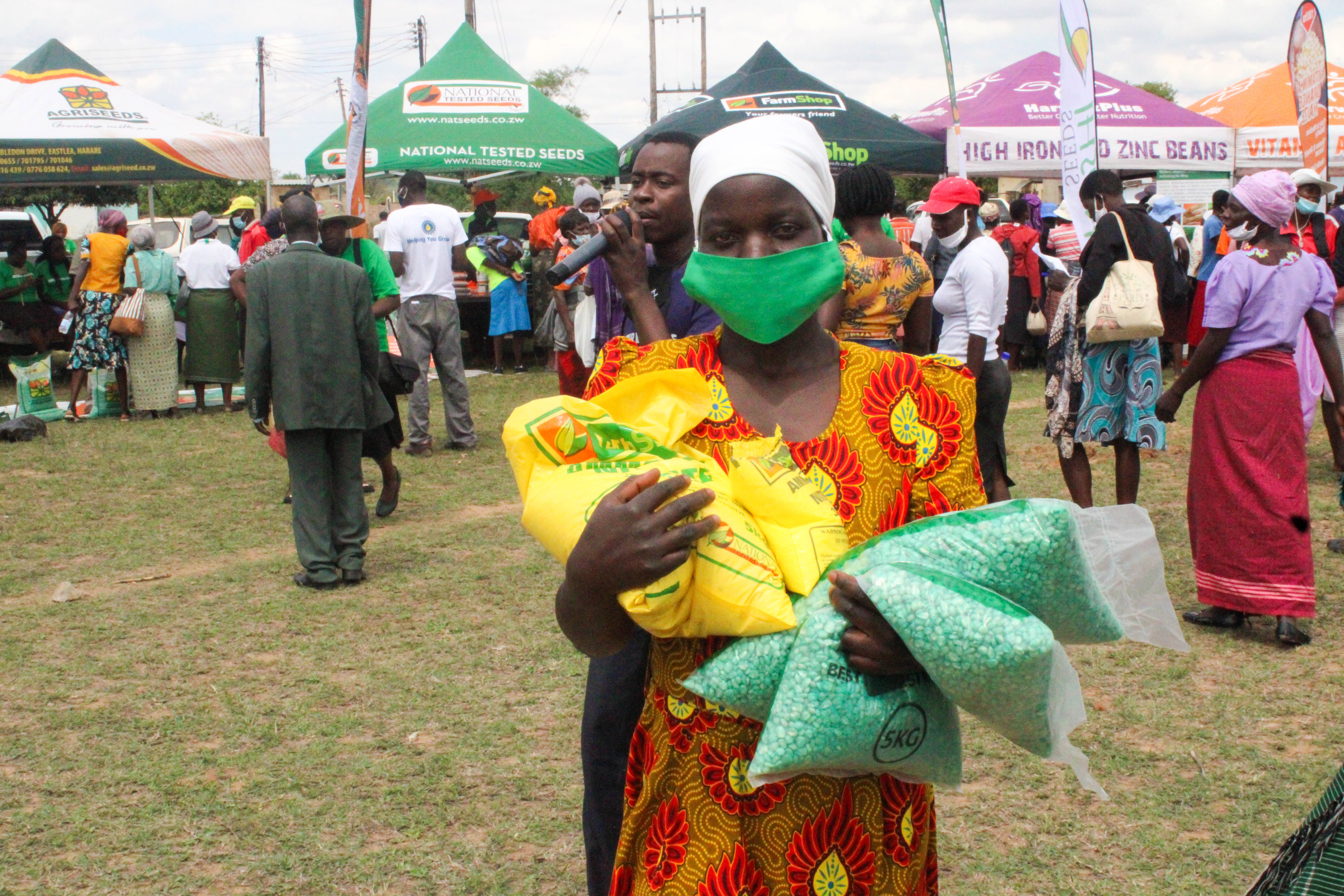
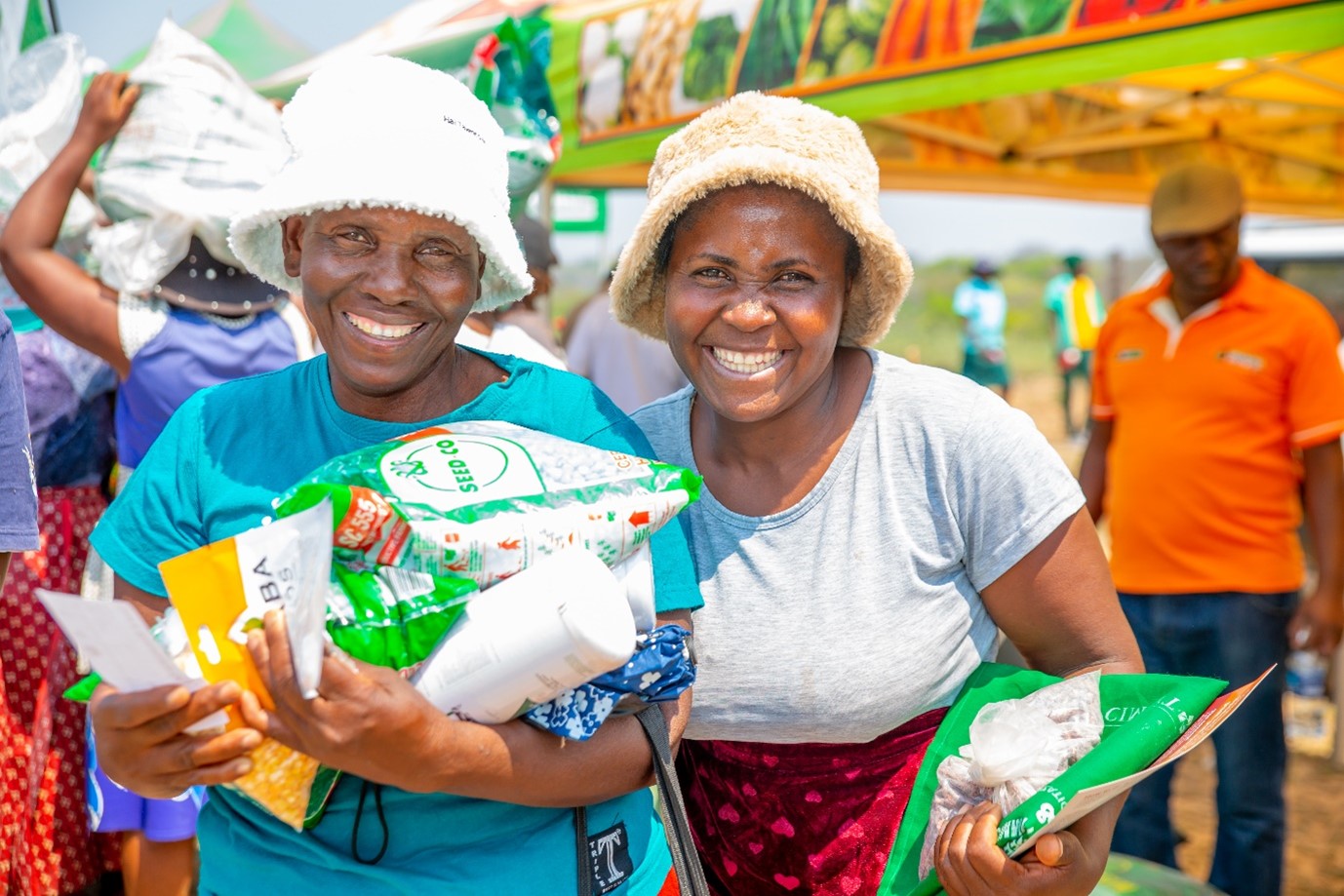
 Capacity development
Capacity development 